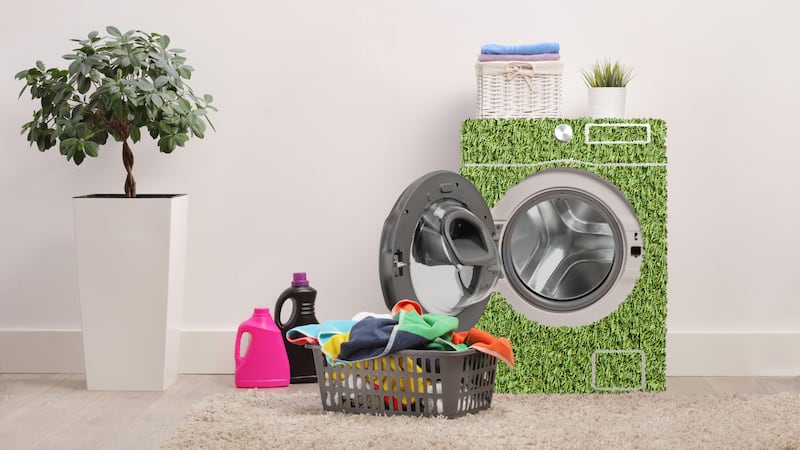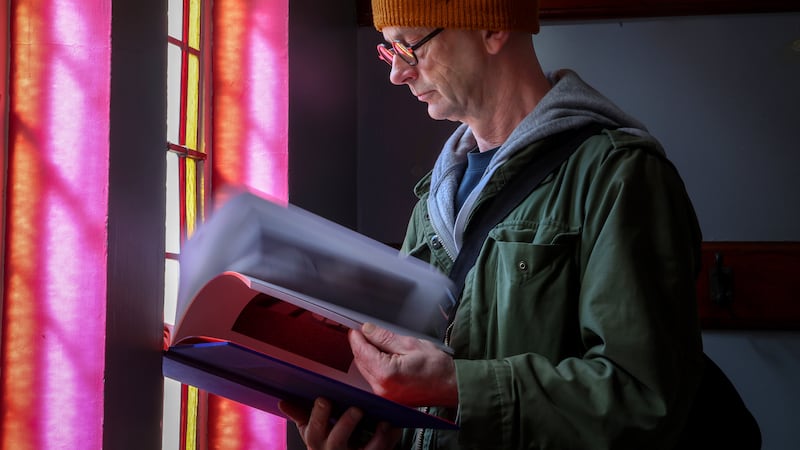HAVE you decided 2019 is the year for a healthier, fitter you? Many of us make New Year resolutions to diet, give up smoking, join a gym or save money, but few of us give any thought to our mental wellbeing.
Owen O'Kane is a Belfast-born psychotherapist who is a NHS Clinical Lead in mental health, uses his own experience and various psychology models, O'Kane (49) has penned a book that challenges us all to "regain control and make your way back to a calmer mind and better life" – and the good news is that it takes just 10 minutes a day.
"Finding calm in a world that is chaotic is central for everybody. People don't just need therapy – they need something to hold onto and hold them up during the week," says Owen, who describes his programme as "a workout" rather than simply meditation.
Although called Ten to Zen, he is keen to point out that the book is not based on Zen Buddhism.
"I am using the term in a colloquial way that is more to do with being ‘in the zone’ or ‘chilled out’. It’s about achieving that highly desired state of mind that people often access through meditation, when we become calm, aware and enlightened.
"I didn’t want to write a book about stress management skills or how to relax. That’s just sticking a plaster on our problems. I wanted it to have more depth. It’s about how you life live – how to be compassionate and authentic."
These are qualities he learnt from his own mother, Kathleen O’Kane, who died at the age of 57.
"She was diagnosed with breast cancer when she was 43," explains O'Kane.
"She had a prognosis of a year and yet she survived for 14 years. When mum was alive, she had this energy and never let her illness get in her way. She led a compassionate life of being kind to others. She taught me most about the core values I try to live by and teach,"
O'Kane, who first trained as a nurse at Belfast's Royal Victoria Hospital, acknowledges a personal understanding of the anxious mind from his time growing up in Ardoyne during the Troubles and in coming out as gay during his teens.
"I was born in the month the Troubles started and my mum used to tell stories about how she had to silence me from crying in case the house was attacked.
"It was difficult growing up gay in Northern Ireland. When I told my family there was initial shock as they were a very Irish Catholic family, so it was a lot for them to get their heads around, but they got there.
"Ironically, after her passing I discovered my mum had been volunteering for years on a helpline for parents of gay children."
Before training in psychotherapy and moving to London 20 years ago, O'Kane worked for almost a decade as a palliative care nurse, where he heard firsthand the biggest regrets people have on their death beds – and, as a result, learned about the stresses and worries we shouldn’t hold onto.
"I found that they all wished they’d spent less time stressing about things, that they all wished they’d enjoyed the good times more fully.
"This triggered a desire in me to create an effective, reliable process that everyone can use on a daily basis to calm their minds and to start to live in the here and now."
O'Kane acknowledges that whether it be relationship, work, financial or health difficulties, sometimes life can be difficult to manage. He doesn't promise his book will "wave a magic wand" and make all your worries disappear, but he believes the daily mind workout will enable people to get out of their distressed head space, regain a sense of perspective and help them move forward with a greater sense of control.
"I can’t change the circumstances of your life but I can help you decide how you respond to them."
Although 10 minutes each day is what this programme asks for, O'Kane suggests that if people want to practice for longer, or use the techniques at night to help deactivate the brain and enhance sleep, it will be beneficial.
"I use it three or four times a day to keep me functioning well. If I don’t do it, I’m grumpier than normal and things that don’t bother me bother me," says O'Kane, who won't accept any excuses.
“Being 'busy' can be an excuse to avoid change. My argument is that if you will find 10 minutes to go for a shower, to eat or phone a friend, you can find 10 minutes to start nurturing and looking after your mind."
And if your excuse is that you have nowhere quiet to go, he suggests a visit to the bathroom, wearing earplugs.
"There can be no greater priority than taking care of your mind," he warns.
:: Ten to Zen by Owen O'Kane is published by Pan Macmillan and is out now. Tentozen.co.uk.
Owen O'Kane's top lifestyle tips for Ten to Zen living
1. Know when to ask for help or support
Our minds, as we know, can become tired sometimes or a little unwell, just like our bodies. Asking for support or help when you need it is honouring your Ten to Zen principles of demonstrating compassion to yourself, accepting reality and making an authentic choice that is in your best interest.
2. Surround yourself with radiators, not drains
Sometimes it is worth considering the choices we make concerning our friends and sometimes even our family.
3. Get out and do stuff, even when you're not feeling it.
In scientific terms, the act of doing something helps enhance our serotonin uptake, which has a positive benefit on our mood and reduces anxiety.
4. Exercise
Obviously, this should be within your personal ability and without compromising your physical health.
5. Sleep well
Regular sleep improves our mental wellbeing, thought processing and ability to manage our emotions. Sleep hygiene, as it’s sometimes referred to, is an essential part of living well.
6. Watch your diet
As well as the obvious bonuses of managing our weight, such as looking healthier and feeling better, a healthy diet or eating the right foods is also important for the functioning of the brain.
7. Allow yourself to be human
This means fully embracing all: the difficult emotions, the failures, the disappointments, the mistakes, the regrets, the perceived imperfections, the temptations, the falling and the getting up again. Many of us view our humanity as a weakness or failure, yet it is also a source of guidance and strength.




